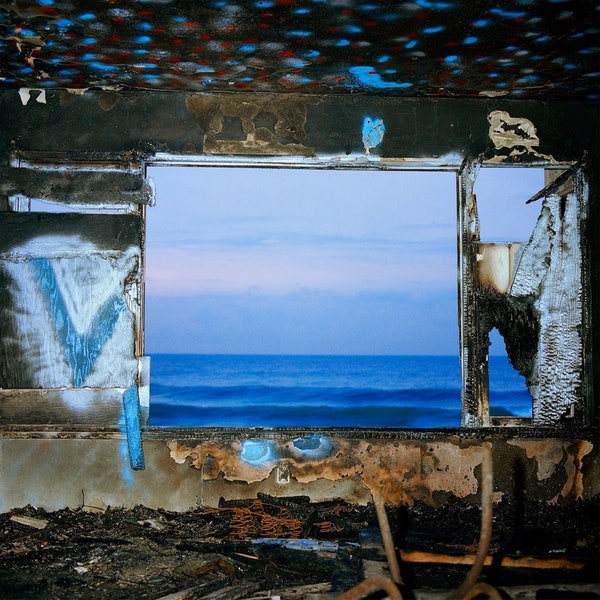
“A thought experiment courtesy of the Stoics. If you are tired of everything you possess, imagine that you have lost all these things.”
— Jenny Offill, Dept. of Speculation
Before this year’s quarantine, it had been ten years since I seriously considered my own mortality. One hot August evening in 2010, due to the carelessness of a drunk driver, my body launched headlong over the handlebars of my bicycle and the center line of my face met the edge of a curb. I was twenty-four. The impact knocked out my two front teeth and broke open a jagged flap of tender skin between the bridge of my nose and the soft meat of my bottom lip. I came to moments later, dizzy and confused in the doorway of an Italian restaurant. A woman told me not to touch my face. I plucked the pale bits of my teeth from the asphalt, apologized to the EMTs, and laughed my delirious way to the hospital in the back of an ambulance. “At least you look hot,” one EMT told me as she held an oxygen mask over my pulpy, bloody mouth and plopped the leftovers of my teeth into a paper cup splashed with milk.
Never since then, until now, did I think with such gravity about the blood flowing through my veins, the decisions I’ve made, the small daily details that I savor so deeply: the smell of flowers, the way the palms of my friends’ hands feel, the obnoxious noise of an older man blasting a boombox on his stoop, the way humidity sticks to the inside of my elbows, the way the air temperature changes after the final ladder rung to the roof.
In my mid-twenties I didn’t wear a helmet. I rode my bike from job to job, party to party, taking for granted the stupid magic of the world, the ease with which my leg muscles handled steep inclines, the fearlessness with which I bombed down hills, the dumb luck of assuming anyone in the room was my friend. I was in good health and good spirits; my hair was long and songs were sung loudly.
In 2014, Bradford Cox was in a near-fatal car accident that left him in a neck brace and considerable pain. A regimen of antidepressants freed him to live his life as asexually as he wanted and to make his poppiest and arguably most cogent album to date. He called Fading Frontier his domestic record, explaining that it signified his turn away from the world; having faced death, he was now free to live outside it. He pulled from earnest but unsentimental pop songwriters whose melodies defined cocaine-numbed eras—Tom Petty and INXS, for example—and used bright sound to describe the heartache and longing of contained spaces: traffic, the dark hollows of a smoky mirrored club, a hospital bed. Its synths are bulky and nostalgic; its chord progressions skip like stones into shallow water. It’s the sound of jumping into a cold pond, taking a deep breath after a crying jag. It’s the sound of relief to feel anything at all.
Depending on the severity, an accident can force convalescence and reckoning. After mine, during what felt like the peak of my youth, I was forced to lie down and manage my pain in a small rented room whose walls I had painted Caribbean Blue in a Vicodin-fueled bout of energy. The end of summer meant lazy front-yard barbecues and, for me, beers with straws and early bedtimes. I cried a lot in bed; I dreamt in vibrant gradients. My concussion made my eyesight register color at a brighter spectrum when I left the house. I was constantly weepy and grateful to be alive. When I looked in the mirror, double black eyes stared back, and despite how defeated I looked all I saw were the signs of survival.
In the face of death or illness, even the most saccharine pop sounds transcendent, if only as proof of life. Melody is reliable the way the stripes of a rainbow are; after a long, long brutal grayness, seeing those stripes can feel like an acid trip. Sunlight feels like a miracle; words fail. “Take no comfort save for air,” Cox sings in the opening track, “All the Same.” Being alive and breathing is enough. “Take your handicaps,” he continues: “Channel them and feed them back / Until they become your strengths.”
— Angella d’Avignon
San Diego, day 48




